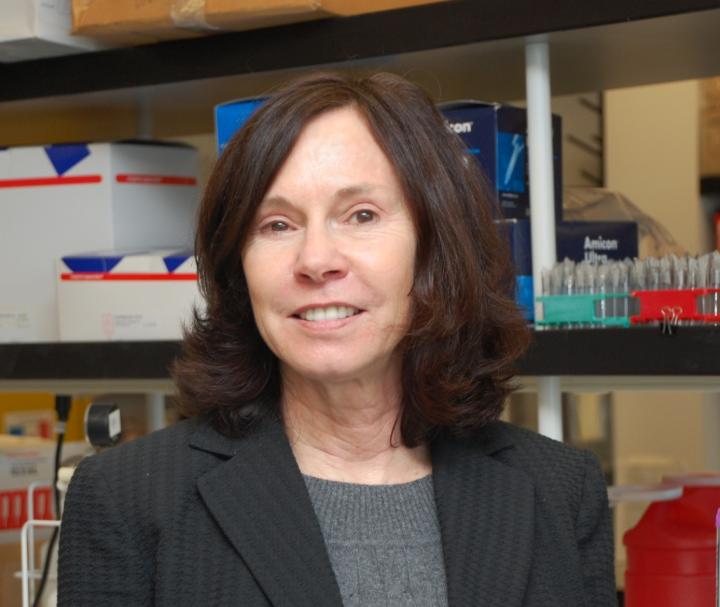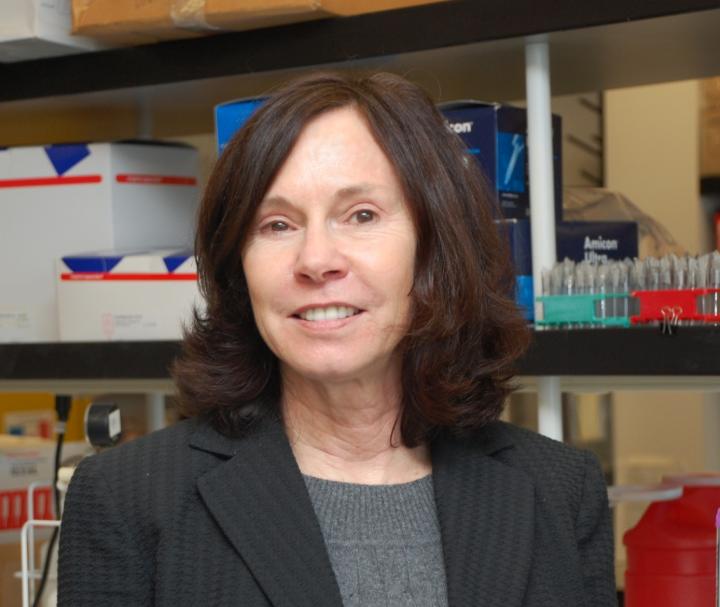
La Jolla, Calif., May 25, 2016 — Research led by scientists at the Sanford Burnham Prebys Medical Discovery Institute (SBP) has identified a new regulator of immune responses. The study, published recently in Immunity, sheds new light on why T cells fail to clear chronic infections and eliminate tumors. The findings open the door for a new approach to modulating T cell responses in many clinical settings, including infections, autoimmune diseases, and tumors that are unresponsive to currently available therapies.
“We discovered that a protein on the surface of T cells, P-selectin glycoprotein ligand-1 (PSGL-1), acts as a negative regulator of T cell function,” said Linda Bradley, Ph.D., professor in the Immunity and Pathogenesis Program. “PSGL-1 has the broad capacity to dampen T cell signals and promote the exhaustion of T cells in viral and tumor mouse models.”
T cells are the immune cells responsible for recognizing and destroying specific invaders, whether from outside the body (viruses or bacteria) or within (cancer). Their activity is highly tunable–signals from other cells adjust T cell responses to counteract the invasion. However, sometimes those responses fall short, such as in chronic viral infections and cancers that thwart immune responses by inducing T cell dysfunction.
The recent emergence of drugs that block immune checkpoints has provided a new, improved approach to treating certain cancers such as lung cancer and melanoma. Immune checkpoints act as brakes for T cells, restraining the immune system from self-attack and preventing autoimmune diseases. Inhibitors of checkpoints remove these brakes, and unleash the immune system to tackle these cancers–in some cases extending survival by years.
Bradley and her lab found that PSGL-1 is required to increase levels of immune checkpoints to allow T cell inhibition. When PSGL-1 is missing, the brakes are off, and T cells remain active longer than they normally would.
“Blocking PSGL-1 may enhance the immune response to cancer and chronic viral infections such as hepatitis. In contrast, activating PSGL-1 may be a way to inhibit immune responses that could potentially be used to treat autoimmune diseases, such as rheumatoid arthritis, psoriasis, multiple sclerosis and lupus,” said Bradley.
Bradley’s study was performed using mice engineered to lack PSGL-1. These mice could completely eradicate lymphocytic choriomeningitis virus (LCMV) infections, which normally last months.
“Total clearance of LCMV is rare,” Bradley commented. “When we saw that, we knew PSGL-1 was crucial for limiting immune responses.”
The research group then looked at whether this lack of an immune brake would impact cancer by injecting the same mice with melanoma cells. The resulting tumors grew much slower than they do in normal mice, showing PSGL-1 regulates T cell responses in general.
“We’ve received a lot of interest from pharmaceutical companies wanting to explore the clinical potential of our findings,” added Bradley.
“PSGL-1 inhibitors could provide another tool in the arsenal against cancer, and benefit the many patients who don’t respond to the currently available checkpoint inhibitors.”
The Bradley lab is now looking for synergies with other types of anti-cancer drugs. Because T cells may not be able to reach all tumor cells, combining immune therapies with drugs that kill the cancer more directly could work better than either approach alone.
###
This research was performed in collaboration with scientists at the University of Massachusetts Medical School and Yale School of Medicine. Funding for the study was provided by the National Institutes of Health and the Melanoma Research Foundation.
About SBP
Sanford Burnham Prebys Medical Discovery Institute (SBP) is an independent nonprofit medical research organization that conducts world-class, collaborative, biological research and translates its discoveries for the benefit of patients. SBP focuses its research on cancer, immunity, neurodegeneration, metabolic disorders and rare children’s diseases. The Institute invests in talent, technology and partnerships to accelerate the translation of laboratory discoveries that will have the greatest impact on patients. Recognized for its world-class NCI-designated Cancer Center and the Conrad Prebys Center for Chemical Genomics, SBP employs about 1,100 scientists and staff in San Diego (La Jolla), Calif., and Orlando (Lake Nona), Fla. For more information, visit us at SBPdiscovery.org or on Facebook at facebook.com/SBPdiscovery and on Twitter @SBPdiscovery.
Media Contact
Susan Gammon, Ph.D.
[email protected]
858-795-5012
@sbpdiscovery
http://www.sbpdiscovery.org/
The post Study reveals protein that dials immune responses up and down appeared first on Scienmag.





